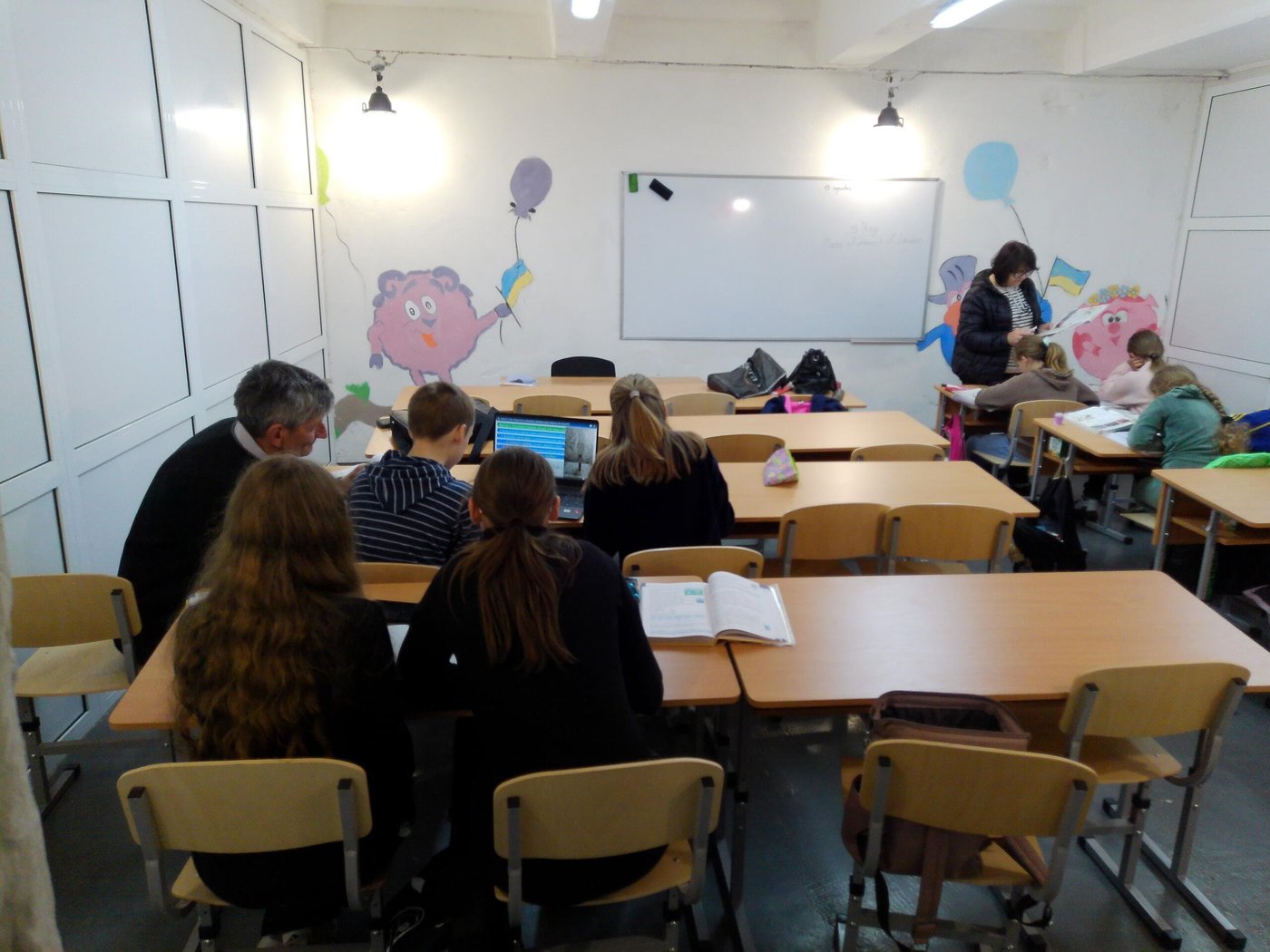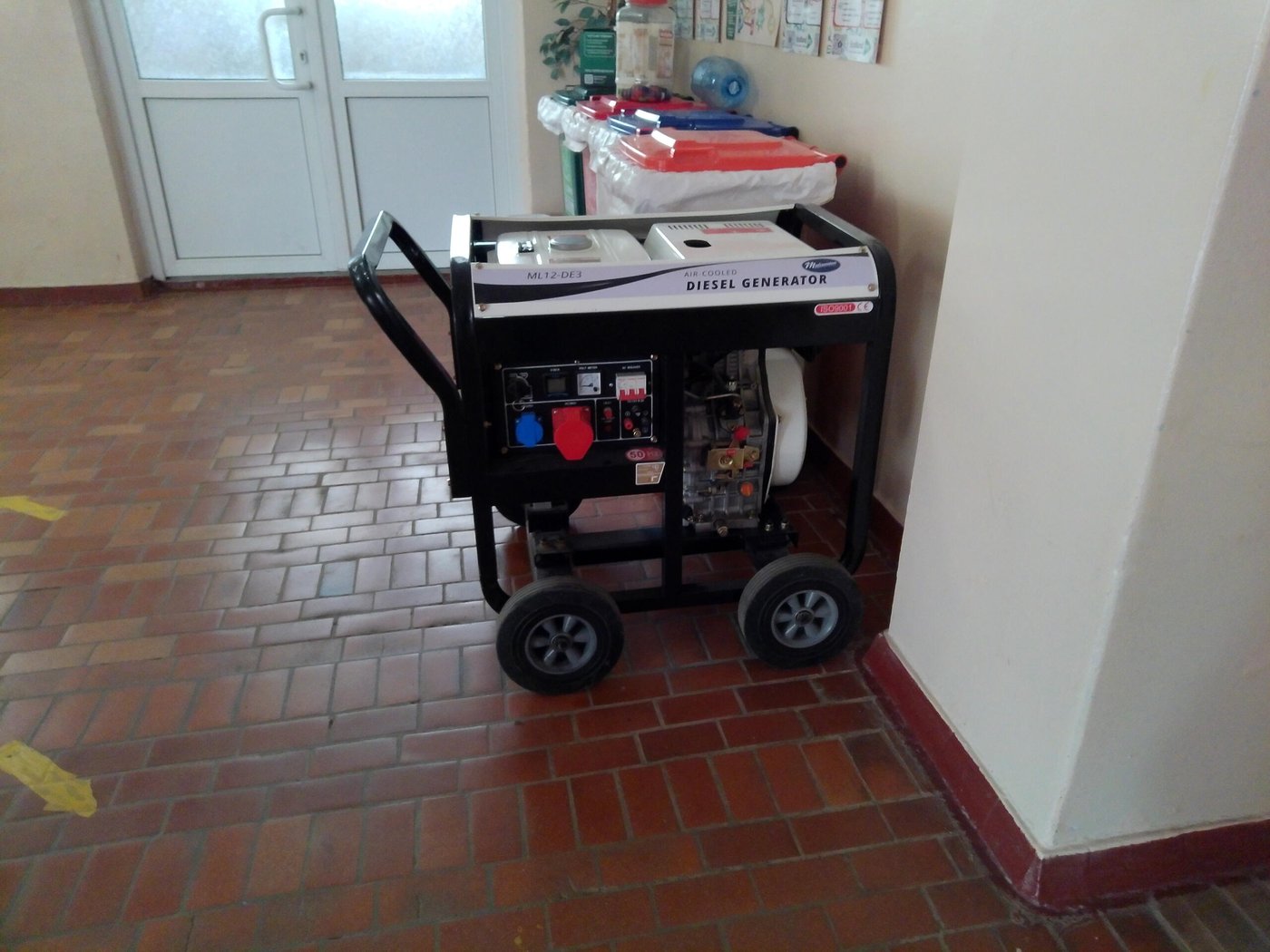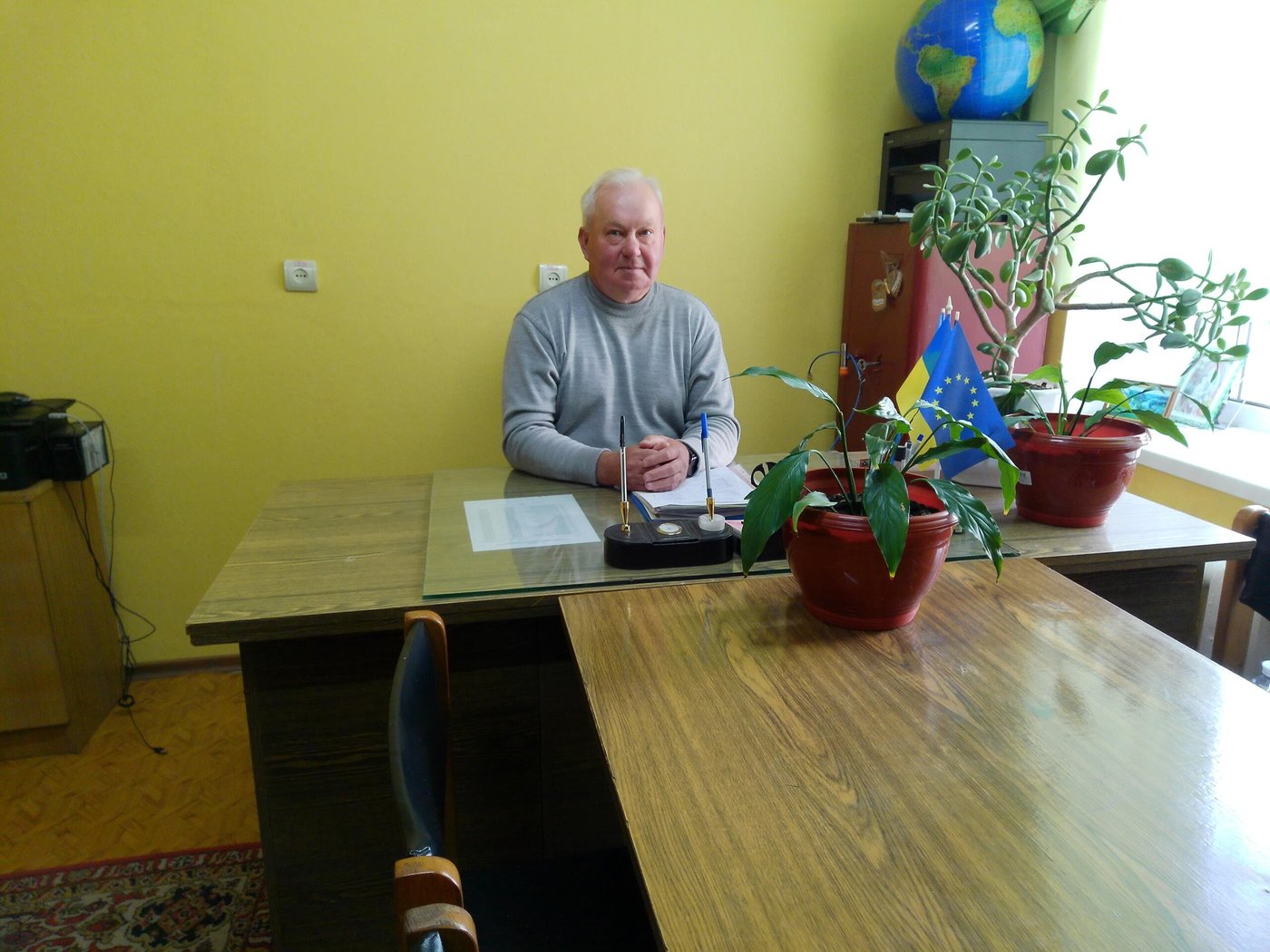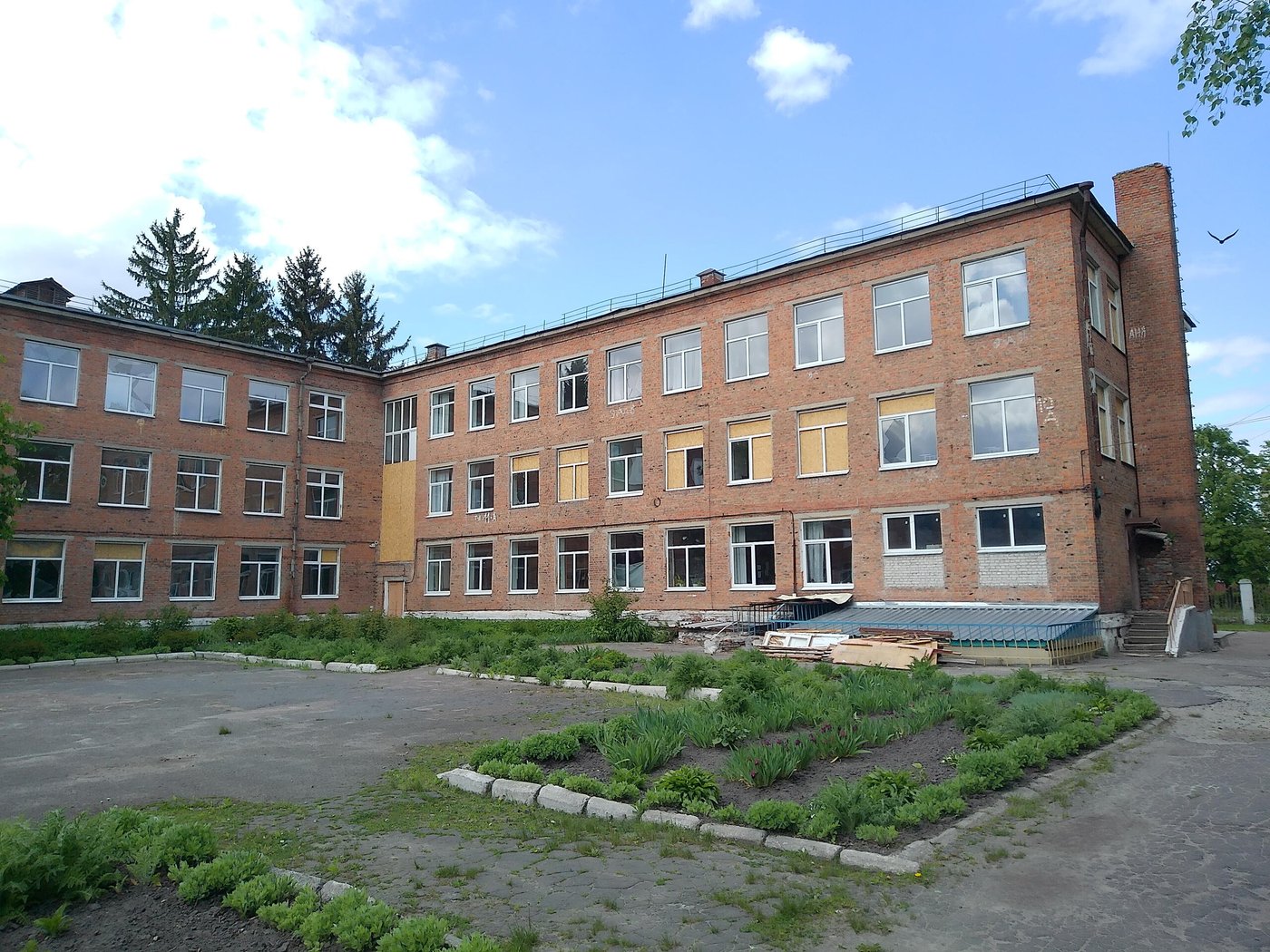“When I came in that morning and saw the school so badly damaged – curtains hanging out of shattered windows, the entrance doors blown apart, smoke in the air, and dozens of rescuers everywhere – it felt like I was in a horror movie,” recalls school director, Nataliia Hrybuk.
School №11 hasn’t been the only one to suffer. Since 2022, communities in Sumska oblast have been living under the constant threat of missiles or loitering munition attacks. In places near the border, like Shostka community, more than 40 per cent of schools have been damaged, and around 65 per cent of students have had to switch to distance learning.
“Parents are afraid to let their children go to school – and we fully understand them,” says Nataliia.
The Norwegian Refugee Council (NRC) stepped in to help rebuild schools and restore a sense of safety and hope for both students and teachers. Soon after the missile attack, NRC provided a budget for repairing windows. Following that, the school prioritised what they urgently needed replaced. As a result, more than 200 broken windows were replaced with new ones, making it possible for primary school children to come back to the classroom and in-person learning.

The power of working together
To ensure that the help matched real needs, NRC worked closely with Shostka’s local authorities and the education department. “What I really appreciate about NRC is that they first ask what’s needed and only then provide the support,” says Ms. Liubov Voloshko, acting head of the education department at Shostka City Council. “That’s so important – and not always the case.”
Beyond repairing buildings, NRC also upgraded schools in Shostka community by installing new equipment, including a high-capacity generator that keeps the internet, lights, and air ventilation running in shelters even during power cuts. Now, the children can safely continue their classes during blackouts.
“With the new generator we are able to have internet, television, light and air ventilation in the bomb shelter and our education activities don’t suffer from electricity disruptions anymore,” says Iryna Smetana, director of School №1 in Shostka.

Helping kids and teachers cope with stress
NRC’s support isn’t only about windows, bricks and wires. To reduce children's stress levels and help them cope with and manage stress, NRC in Ukraine rolled out the Better Learning Programme (BLP). This is a psychosocial support programme for children and youth that promotes recovery from traumatic events and aims to improve the learning environment by teaching children to recognise and cope with stress in emergency or crisis situations.
In November 2024, NRC, together with our implementing partner, Open Policy Foundation, held a catch-up learning camp to help children make up for the classes they had missed because of the war. The programme mixed interactive lessons with psychosocial support. The aim was not just to improve academic results but also to give children a safe, supportive space to learn again. Twenty children and five teachers from Shostka community joined math camp run by BLP methodology.
Teachers of different subjects also took part in three days of BLP training and then brought the methods back to their schools, conducting four BLP lessons per grade– even as the situation on the ground remained unstable.
The effect was immediate. Children loved it.

“They adore the breathing and balance exercises and are always happy when we do them during lessons,” says Mykhailo Solotvinskyi, director of Myronivka Village School in Shostka community.
Mykhailo and his colleagues agree: even small signs of stability bring back a sense of normalcy, helping both students and teachers carry on during tough times.
By repairing schools, providing equipment, and offering psychosocial support, NRC – together with the Shostka local authorities – is showing the power of working together.
This collaboration is helping children to not only physically return to classrooms but also to feel safe enough to learn again, even while living under the shadow of war.
Sign up to our newsletter to read more stories from around the world.


